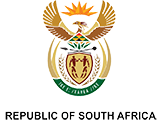Solving the electricity challenge is vital for South Africa's investment drive
Dear Fellow South African,
A few days ago, I met with US President Joe Biden in Washington to discuss several issues of concern to both our countries, including peace and security, climate change and food security.
Most importantly, we discussed ways to deepen trade and investment between our two countries.
WATCH: US President @JoeBiden welcoming President @CyrilRamaphosa to the White House. The United States is a strategic partner for South Africa and a major export market for value-added products, a significant source of FDI, technology transfer, development assistance & tourism. pic.twitter.com/bxDWjiovXi
— Presidency | South Africa 🇿🇦 (@PresidencyZA) September 17, 2022
Behind China and the European Union, the United States is South Africa’s third largest trading partner and is the second largest destination of our country’s exports.
There are around 600 US companies in South Africa. And over the years an increasing number of South African companies in sectors as diverse as mining, energy, chemicals, banking, health and wellness, and luxury goods have expanded their footprint into the US.
We agreed with President Biden that we must do more to increase business between our two countries and have set up a joint task force on trade and investment to provide focus and direction to our efforts.
While in Washington, we also spoke to several US business leaders who expressed a keen interest in investing in South Africa.
The visits we undertake to various countries, be they working visits, state visits or trade missions, are crucial for promoting investment and trade. They bring in investment and they create jobs. They also improve our relations with the countries we visit thus creating great opportunities for our country.
Building strong partnership with other countries is important, but it is not enough.
That is why we are working to make our economy more competitive, more efficient and more attractive to both international and local companies.
First and foremost, we have to overcome the electricity crisis.
Since late last week, Eskom has been forced to implement load shedding due to breakdowns at a number of power stations. The situation has been made worse by the depletion of emergency generation reserves such as pumped storage and diesel turbines and the need for these to be replenished.

The severe load shedding of the last few days has reminded us how unstable our ageing power stations are. It has given greater urgency to the measures we announced two months ago to stabilise our electricity supply.
On Sunday, I held an urgent virtual meeting with Ministers and officials on the reasons for the current load shedding and the steps being taken to reduce the severity and frequency of load shedding in the coming days and weeks. Eskom has already announced some of the measures it is taking and we will remain seized with this issue until the situation is resolved.
Solving the electricity crisis is necessary if we are to realise the potential of our economy. In 2018, we launched an ambitious investment drive to raise R1.2 trillion in new investments over five years. To date, and with still a year to go, we have raised more than 90% of that amount in commitments from both domestic and foreign investors. Of these commitments around R330 billion has already flowed into the economy, opening new factories, expanding production lines and creating new jobs.
Last week, I was at the launch of the Hesto Harnesses automotive component manufacturing site in KwaDukuza in KwaZulu-Natal. The facility will create more than 4,000 jobs, nearly doubling the existing workforce.
The company will supply components to the Ford Motor Company, which made a commitment at the South Africa Investment Conference in March to invest around R16 billion to expand the local production of the Next-Gen Ford Ranger.
Ford is one of the biggest investors in the local automotive industry and is the anchor tenant at the Tshwane Automotive Special Economic Zone that I opened in 2019.
Also last week, I attended the launch of the Sappi Saiccor expansion project in Ethekwini valued at R7.7 billion. The project will support the creation of jobs and business opportunities for smallholder farmers.
Since this year’s South Africa Investment Conference, a total of 10 projects have been completed or launched to the value of R15.3 billion.
The recent launches of new investments and expansion projects by Ford, Anglo American, Metair Investments, Corobrik, Consol Glass, Isuzu, Sappi, Google, Netflix, Sandvik and others show that both domestic and foreign investors see South Africa as a favourable place to invest and to do business.
These companies recognise the progress we are making in several areas of reform, such as telecommunications, energy, water provision, freight rail and ports. The Presidency is working with several departments and other partners on cutting red tape in critical regulatory processes. Through the master plans that have been concluded in several industries and through mechanisms like the Employment Tax Incentive and the bounce-back loan scheme, we are encouraging small businesses to grow and employ more people.
Despite the many challenges our country faces, the recent inflow of foreign direct investment from the US, Sweden, Japan, United Kingdom, Ireland, Germany, China and others is a vote of confidence in our economy.
Together, these investments make a clear statement that there is a great future for companies that do business in South Africa and that the case for investment is growing ever more compelling.
With best regards,
With best regards,

- Tags:
- Eskom /
- Loadshedding /
- Economy /
- Investment /
- Renewable energy /
- Economic recovery /
- Energy Action Plan
Tweet



